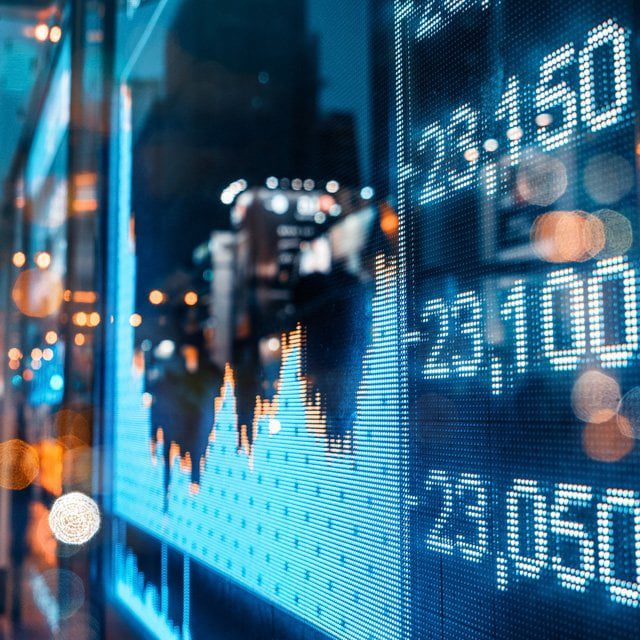VIX Tumbles Toward Pre-Covid Levels as Stocks Gain

The relentless rally in big tech and bets on a pause in Federal Reserve hikes following a mixed jobs report drove U.S. stocks toward a bull market.
An advance of about 1.5% for the S&P 500 extended the benchmark’s surge from its October low to nearly 20%.
A gauge of megacaps like Tesla Inc. and Apple Inc. headed toward its sixth straight week of gains — the longest winning run in almost two years. Broadcom Inc. climbed after predicting that sales tied to artificial intelligence will double this year.
As stocks rallied, Wall Street’s “fear gauge” plummeted toward its lowest level since February 2020. The Cboe Volatility Index, or VIX, dropped below 15 from an average of 23 in the past year.
The risk-taking mode also drove the Russell 2000 index of small caps — the home of several regional banks — up over 3%
“The impressive run for equities continues to drive retail investors into the market,” said Mark Hackett, chief of investment research at Nationwide. “Investors have spent much of the past three years obsessed by the Fed, inflation, and payrolls, though volatility around those reports has settled, reflecting a less emotional market. This is bullish, as less reactivity is a sign of a healthy market.”
$1 Trillion
To be sure, the stock rally doesn’t mean the market isn’t facing headwinds, according to Quincy Krosby, chief global strategist at LPL Financial. Among the risks, she cites the potential ramifications of the deluge of Treasury notes — approximately $1 trillion — to be auctioned by the department as it replenishes its general account following a debt-limit deal.
“That the Fed has telegraphed that June 14 is off the table for a rate hike no doubt reflects its concerns regarding the potential for increased market volatility stemming from dissipating liquidity,” Krosby said. “Still, today’s across-the-board rally confirms that the market doesn’t see an impending recession despite the incessant calls for one.”




